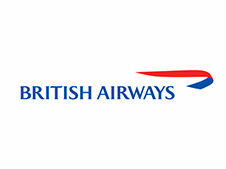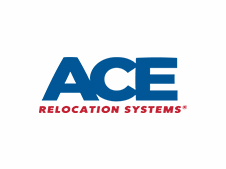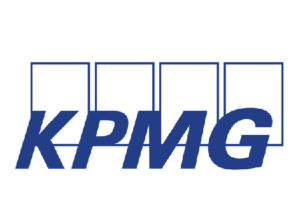Currently the US possesses a third of the world’s spending power – but that proportion is falling fast. With just 4% of the world’s population and a pretty stagnant economy, home grown companies are increasingly looking to foreign climes to build a bigger global client base. Research shows that the companies that do so are more profitable for their shareholders – and less likely to go under.
But it is also a complex project management challenge. Selling or establishing workforces in foreign markets comes with a plethora of HR, tax, compliance and legal questions, from how to protect your IP to tackling red take and corruption – not to mention a morass of issues surrounding employment and labor law. On Tuesday, April 9, 2013, the BABC and Nair & Co presented “Going Global: Your Passport to Growth”, a panel event to help answer some of these questions at the Mission Bay Conference Center.
The panel was moderated by Sir Alan Collins, former British Consul General in New York, non-executive chairman of Nair & Co, and as High Commissioner in Singapore, a member of the team that won the 2012 Olympic Games for London. He was joined by Norma Lane, VP at LiveOps, Michael Kelly, Parter at Squire Sanders, and Stuart Buglass, Director at Nair & Co.
Sir Alan opened by discussing the likely gains and potential pitfalls surrounding the international imperative.
“People don’t understand that the truth about globalisation is that the movement of people and ideas around the world encourages more and more brands to become global rather than national,” he says.
“They don’t want to be left behind and be overtaken by disruptive technology. Even in such a big market as the US – if you’re not thinking about expanding and going global then you risk becoming smaller.
“Moreover, research has shown that companies which are global and exporting successfully have higher productivity – and their changes of survival are also higher. This all points to the fact it is a good idea to be exploring and implementing a plan to become a global player.
“That’s not to say that you suddenly have to be in 140 countries overnight. Pick the areas where you think you can expand successfully, do the right research, and find places with a need for your business.”
Over the next forty years the league table of the world’s wealthiest companies is in for a dramatic reshuffle. By 2050 the top list will run as follows: 1. China 2. US 3. India 4. Brazil 5. Japan 6. Russia 7. Mexico (currently it stands at 1. US, 2.China, 3.Japan, 4.Germany, 5.France, 6.Brazil, 7. UK).
Expanding into the BRICS may seem very tempting to companies seeking new customer bases – but it’s certainly not plain sailing. The number of hazards hidden below the surface in countries like Brazil or China can make what initially seems an obvious target for expansion to be a far more complex, and costly, prospect than they might originally realize.
Created with Admarket’s flickrSLiDR.
Research, Strategy and Planning
“Companies need to be certain they have a product that will be successful in an overseas market,” Collins said. “Do your homework – you can’t just assume that because something sells well in the US it will automatically be embraced abroad. You need to plan your entry well, in a way that fits into the company’s overall long-term strategy.
“There are many different ways companies can set themselves up – but it is important to the get the structure and framework up and ready from the start.”
“Bear in mind that the rules and regulations that govern business in different countries change all the time. To track these regulations you either need to set up a substantial monitoring operation of your own, or outsource the monitoring to a companywhich will monitor regulatory and compliance changes for you.”
Employment Issues
Deciding where to expand is the key initial consideration for most corporations – and depends largely on which metrics are most important for companies to emphasise. “Employment law is often seen as the driving metric when benchmarking a country, steering clear of countries with a lot of employment law and watching out for labor legislation that makes it possible to terminate employees’ contracts relatively easily,” said Stuart Buglass.
“However for a start up location there are other metrics that can hurt far more than a rigid set of employment laws. In France for example it is true that if you have a poor employee there, you may have to spend at least six months’ salary on their termination – but contrast this with a country like Brazil, where there is a real skill shortage and you often just simply can’t get the talent you need. You have to weigh up whether the indirect costs of having your key roles either vacant or filled with lessor quality employees for sustained periods is less or more costly than a six month pay out to an employee who has provided three years’ skilled service.
For Michael Kelly,head of the California Labor & Employment Practice Group at global law firm Squire Sanders, workforce flexibility is something to be very conscious of. “The thing that frustrates us lawyers is ending up in a place where we feel we can’t fire people,” he said drily.
“The few months of litigation you would need to go through in order to get rid of a bad employee in the US is a luxury in many foreign countries.
“You have to contrast the amount a typical employment tribunal would force you to pay out here say, six months salary – with dealing with foreign harassment cases which take up months of deputations, emails, lawyer’s hours. All of that adds up very quickly – I would much rather pay out six months’ salary and be done with it.”
The role and power of unions also vary considerably, as Norma Lane, VP of HR at LiveOps, a cloud-based customer contact service, pointed out.
“Labor laws are a real point of difference between countries. In the US you need a lot of notice if a union is being formed. In some areas of Europe a works council has the right to negate all kinds of things on behalf of all the company’s workers.”
Tax
Tax rates – and tax bases – are the second essential factor to consider.
“Your investors will certainly want to know about corporate tax,”Buglass said, “and in the UK and Canada it has been dropping a great deal recently precisely to attract companies from overseas.
“But often countries which reduce the corporate tax rate are maintaining their incomes overall by increasing their tax base. You shouldn’t look purely at the rate of tax – it’s important to consider the size of the tax base and the impact that will have on your wider profit.”
Another important question is tax administration.
“If you look at UK or US tax administration, it may typically take a small company 197 man hours per year,” Buglass said. “In Brazil that figure would be 2,000.” Whilst initial taxes and set up costs might be much lower than elsewhere, “you are paying an expensive price later on.”
“The worst examples are countries with skill shortages, high taxes, a lengthy tax system and a long set up processes,” he said.“In places like Russia and Brazil, you spend a lot of time dealing with issues beyond the headlines rates.“
Cultural Difference
It is also essential for companies to consider how they will position themselves within the culture of the country they are to be launching in.
“You need to find a place where you can communicate effectively,” Norma Lane said. “Ideally it needs to be somewhere with similar entrepreneurial values. You also really need to have a passionate business reason to open in a certain location, whether that is because the smartest people in your field work there, for example, or because they’re your most important customers.
“It’s important to communicate across the global business and keep your employees engaged. If you don’t create a corporate culture, then culture will happen to you. When I hire new employees, I fly everyone over and immerse them in the company culture here, get them excited about what we do and reinforce the idea that we are all just a phone call away.
“This really is absolutely critical. If employees feel far away from the main company, not fired up and regularly communicated to – it just won’t work.
Intellectual Property
“You also need to think about how to respond if an employee goes off and infringes your copyright,” Stuart Buglass warned. “In China infringement is a whole industry on its own. Companies operating there are really struggling to give value to IP – the government regularly makes regulations about it but the implementation just isn’t there.
“US style pre-invention assignment agreements just don’t work in many international jurisdictions and therefore where employees produce inventions or original works during their employment ownership will be determined by statute rather than an earlier contractual arrangement, and will also often require the payment of compensation to transfer the rights to the employer.
“In India on the other hand there are a lot of legal protections but it will take years to get before a court. You can turn to an international arbitration court instead in these cases but there is no right of appeal (for the purposes of foreign enforcement, arbitration is still to be preferred to a court judgement which will stand very little chance of being enforced elsewhere).
“We all know that China is going to be the number one economy in the world, but the level of unpredictability over IP – and other areas – and the resulting expense, could mean you might be better off locating somewhere nearby, but operating under a common law jurisdiction, like Hong Kong or Singapore, or somewhere where English is more commonly spoken, like South Korea.”
Corruption
The risk of getting embroiled in local practices tolerated in local markets but illegal in the US and other western countries is another very real fear which can deter many organizations from venturing into less familiar geographies.
The Foreign Corrupt Practices Act in the US – equivalent to the UK Bribery Act – means corporations are liable for the activities of their employees wherever they are operating – and that they have a duty to make sure they don’t break any US laws.
“The good news for global competition,” Collins said,“is that the rest of the world is really starting to catch up with the US and the UK. Japan for instance is now beginning to insist that companies implement something very similar.
“The situation is beginning to change,but in unregulated places like Brazil, India, China it is still most likely that companies not bound by these laws will beat US companies to get contracts. In Africa China is clearing up many competitive mineral deals through bribery, for example.”
Michael Kelly said the only way to try and make sure a company’s global employees are keeping to the terms of the act is to make sure they are fully signed up to the company’s ethos and proud of its corporate culture.
“The Act keeps people awake at night – the thought that as CFO of an American corporate you have responsibility for what goes on in East Timor, for example,” he says.“To counteract this you really need to help your employees embrace the company and love its ethos. You need them to want to keep up the company’s name so they don’t indulge in practices which are unacceptable in the US.”
Taking a local business international is clearly no easy task, and the opportunities for error are manifold. For Norma Lane, it’s all about being patient, determined, and choosing good employees. “Going international should not be a mistake. You need to be prepared to make a patient concerted effort. Be passionate – and choose passionate employees in the image of what you want the company to be.”
Companies in both the US and the UK have certainly been sluggish in past years in taking advantage of the international opportunities available.
As Sir Alan Collins said, “it is self evidently true that some US companies are satisfied with a large domestic market and haven’t seen the requirement to reach out internationally. But increasing numbers of US companies have begun to see the situation is changing…and all the indications are that we are only going to get more global.”
The middle classes of the western world are no longer growing; once businesses reach a certain size, they have little choice but to see to expand abroad and seek out new markets if they wish to continue to grow. By acting on this realization earlier than their competitors, and delivering on it effectively, organizations have the opportunity to reap a huge advantage.
Whilst embarking on a program of international expansion is a complex undertaking with many different factors and variables to take into account, in today’s highly competitive global village those organizations that fail to consider taking the leap overseas may soon be paying a heavy price.
We would like to thank Nair & Co, the Mission Bay Conference Center and ARAMARK for their generous sponsorship of this event.












































